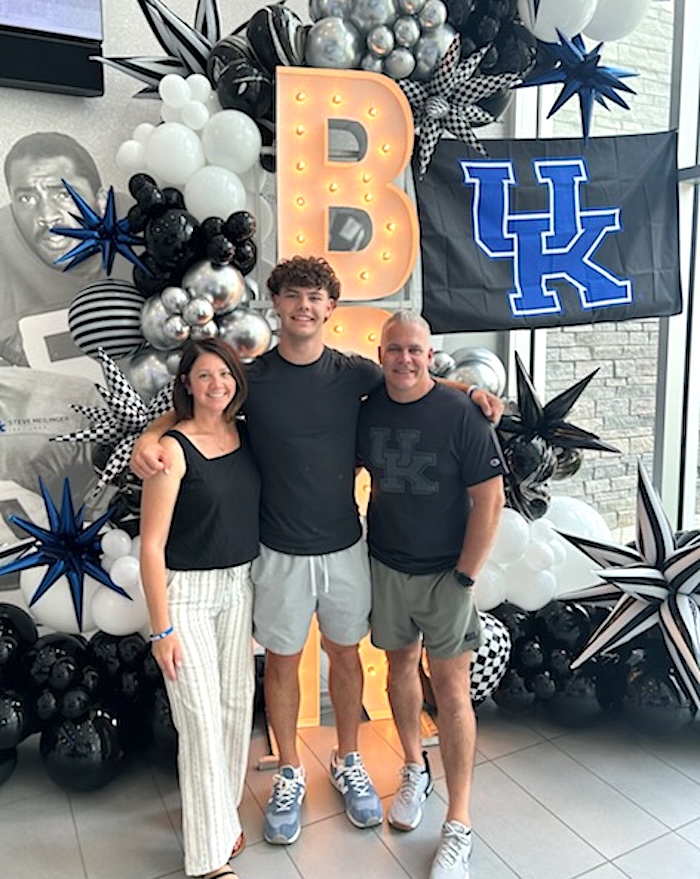Ten things dog owners should know
Published 7:51 am Thursday, July 22, 2021
|
Getting your Trinity Audio player ready...
|
By Mandy Eakins
Contributing Columnist
There are a few things I wish dog owners knew. While yes, these things would make my job easier, honestly it would keep more dogs in their homes. Shelters are full of dogs that no one wants because of behavior issues. Behavior issues that could have been avoided in most cases. I came up with the following list based on my most frequent conversations with clients and potential clients.
Trending
Things I wish people knew:
There is no regulation in the dog training world.
Did you know there are more regulations and licensing for a manicurist than a dog trainer? There are absolutely no regulations or governing bodies that oversee the profession of dog trainers. Anyone can call themselves a dog trainer and sadly they do. Just because someone has had dogs all their life doesn’t make them a trainer. That would be like saying, “I’ve had teeth my whole life. I’m qualified to be a dentist.” It sounds absurd and it is. Being a police officer, a groomer, a veterinarian, a dog lover, a shelter worker, or buying into a franchise does not qualify someone to be a dog trainer. Look for trainers that belong to a professional organization that follows a code of ethics, can show proof of continuing education, and hold a nationally recognized certification.
All trainers and training is not the same
A great resource for how to find a dog trainer is outlined by the American Veterinary Society of Animal Behavior. Dog training using tools like prong collars, shock collars (if it’s an electric collar it’s a shock collar), throw chains, spray bottles and other forms of physical correction are not veterinary recommended forms of training and should be questioned. Dog training is a science like any other behavior science and should be taught as such. Dog trainers should be taking into consideration the health of the dog, the behavior history of the dog, and breed of dog. Consideration for the goals, resources and comfort level of the family working with the dog should also be a part of a training program. Dog training is not a “one size fits all” industry. It’s not all about sit, down, come and “place”. Dog training is not about having a dog lay on a cot for hours and hours.
You can start training before a dog has had all of their shots
Trending
Again, look at the veterinary guidelines. AVSAB as I sited early has a great article on early puppy socialization. In a clean, controlled environment, puppy socialization classes and lessons are perfectly safe. Training for puppies can begin as early as 9 weeks of age provided the puppy is showing no signs of illness.
People food is ok
I can feel the stares coming through the screens. People food is fine in moderation. Let me say it again for those in the back. People food is fine in moderation. I use hot dogs, string cheese, chicken, meatballs, goldfish crackers….the list goes on and on. It’s how and when you give the food, not the kind of food. Don’t be scared to explore your training treat options. Training treats are small; think the size of your pinky fingernail or smaller. And honestly….if you sat down to a bowl of dog kibble in the morning, what has it become? People food. Again, it’s how and where you give it, not what you give.
Clickers aren’t forever
Clicker training is a tool. You eventually fade it out of your day to day training. The clicker is used to teach new behaviors , or strengthen behaviors in a new environment. You don’t have to walk around the house with a clicker. When I do training sessions I break out the clicker and put it away in between sessions. I verbally mark desired behavior from my dog and use one of the many rewards I have available to me to reinforce that behavior or behaviors.
You have to reward your dog
Speaking of rewards. You have to reward your dog. Rewards can vary and that’s one of the pieces of the training puzzle. Finding what motivates your dog to continue to work. You can expect your dog to “listen because he/she wants to please me”, or “do what I say because I said so”, when you will go to work because your boss said so and you just want to please them. No, it’s not always about food. Good trainers use a variety of rewards for the dog they are working with, but they use rewards the dogs truly finds reinforcing.
Your dog gets to decide the reward
Pats and praise don’t always work. Neither does food. Your dog gets to decide what they like. It might be a sniff on the ground. A run around the yard chasing a ball. Finding what your dog likes is part of the fun. Experiment with rewards and see what your dog really likes.
Your dog doesn’t know it did something bad
They really don’t. I promise. Dogs that look guilty or hide after they have done something are responding to your behavior and actions. They also could be anticipating a correction or punishment. Don’t believe me? I bet I can make your dog look guilty about pocket lint.
You have to be prepared when you take your dog out
This is my most frustrating part of teaching others. I’ll spend an hour with a client in class or a private lessons going over what we need to do to change behavior. Your dog is pulling? Where is your harness? Your dog just did an amazing offered sit. WHERE IS YOUR REWARD FOR THE DOG?? You have to be prepared when you take your dog in public. Just like parents taking their babies out to eat or to the store, they go prepared with diapers, a change of clothes, toys, bottles, etc. When you leave the house with your dog you should have the following. Poop bags, treats, harness, appropriate leash, and lastly…..a plan. You have to have a plan. What are your goals for your dog? What behaviors are you trying to avoid? What behaviors are you trying to increase? To be a good leader, you have to have a good plan.
Good dogs take work
It doesn’t happen overnight. It takes work. Lots of work. To change your dog’s behavior you have to change your behavior. Creating new habits is hard. Changing old habits is even harder. This dog training thing in a team sport. We have the dog, the owner, the trainer, and the vet. We all have to work together to have a happy, healthy, enjoyable dog. To get there you have to “train. don’t complain.”
Mandy Eakins is a certified professional dog trainer specializing in modern, behavior-science training. Eakins and her husband, Mike, own Manners Matter Dog Training and Daycare in Nicholasville. For more information, visit www.mannersmatterky.com, www.facebook.com/mannersmatterky or www.instagram.com/mmk9ky.






